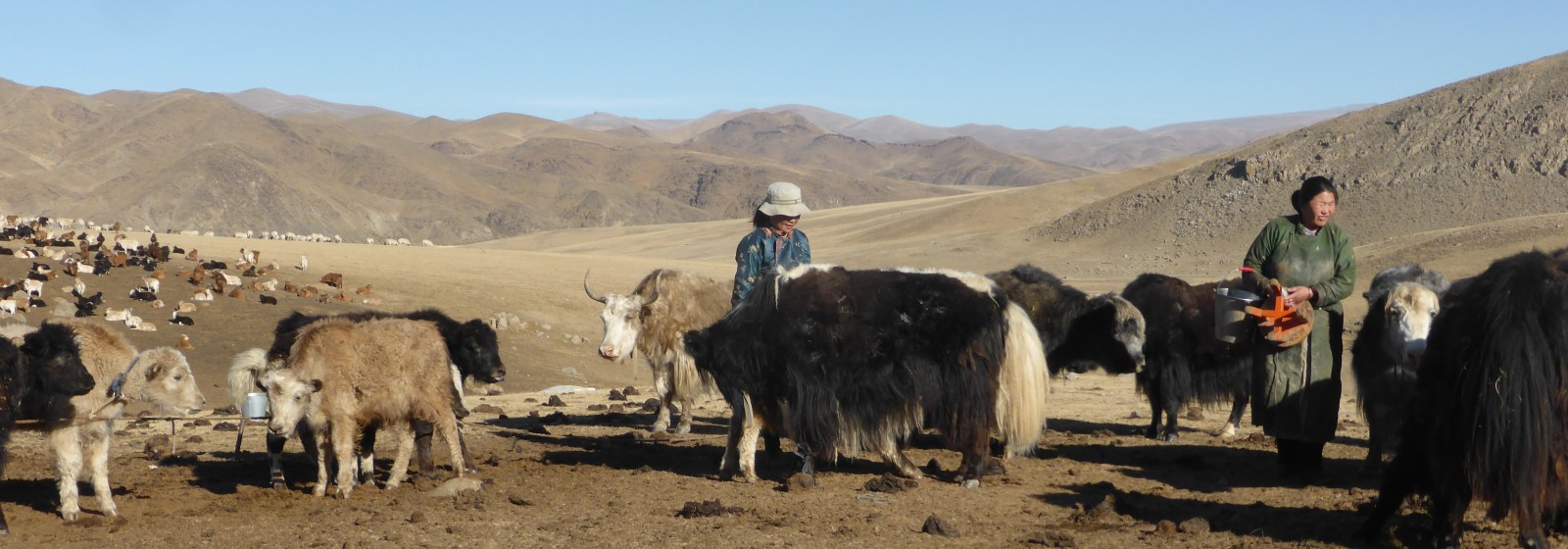Rangelands and drylands, together with the people whose lives and livelihood upon them, are often forgotten in global discussions. But at the “Restore the Earth” Global Landscapes Forum (GLF) held in September in New York, the Rangelands Initiative of the International Land Coalition (ILC) had an opportunity to raise the profile of these landscapes, to highlight their productive and environmental importance.
The session, entitled Drylands and Rangelands: Harnessing Change, was led by Fiona Flintan, senior scientist at the International Livestock Research Institute (ILRI) and lead of the ILC Rangelands Initiative Global, together with Daisy Hessenberger, from the Global Ecosystem Management Programme (EMP) at the International Union for the Conservation of Nature (IUCN). It formed part of the collective conversation to identify opportunities to restore landscapes that fall under the UN’s ambitious Decade on Ecosystem Restoration (2021-2030). In addition to drylands and rangelands, the landscapes included in the decade are: agricultural land, forests, mountains, peatlands and oceans.
Read more about the drylands and rangelands session at the GLF in New York in this blog post on the International Land Coalition website, written by Fiona Flintan.
What is the UN Decade on Ecosystem Restoration and why does it matter?
The UN Decade on Ecosystem Restoration is a global call to action that aims to draw together political support, scientific research and financial muscle to massively scale up restoration from successful pilot initiatives to areas of millions of hectares. More than two billion hectares of the world’s deforested and degraded landscapes offer potential for restoration.
Many of the world’s ecosystems are on the brink of ecological collapse and their continued degradation not only contributes to climate change, it also threatens global food security, water supply and biodiversity.
“This [UN ecosystem] restoration decade is… about our very survival,” declared Inger Anderson, Executive Director of UN Environment, during her opening remarks at the New York Global Landscapes Forum event that took place at the close of Climate Week and the 2019 UN Climate Summit. “We have to restore and we have to lean in – and we understand that restoration is entirely possible if we invest in nature.”
The Decade builds upon global forest restoration efforts initiated under the Bonn Challenge. Launched in 2011, the challenge is a global commitment to bring 150 million hectares of the world’s deforested and degraded land into restoration by 2020, and 350 million hectares by 2030.
Underlying the Bonn Challenge is the forest landscape restoration (FLR) approach, which looks at restoration not only at the ecology level, but also through a multi-functional landscape approach that aims to address food security, social and economic aspects. Initiated by the Government of Germany and International Union for Conservation of Nature (IUCN), the Challenge was later endorsed and extended by the New York Declaration on Forests at the 2014 UN Climate Summit.
Lina Dolores Pohl Alfaro, UN Food and Agriculture Organization (FAO) representative in Mexico, was Environment Minister of El Salvador when her country initiated the proposal for the UN Ecosystem Restoration Decade. During her inspirational talk at the GLF event, she called on the global community to “step up its ambition towards restoring all ecosystems including forests, grasslands, croplands, wetlands, savannahs and other territorial and inland water ecosystems.” She also highlighted the urgency of this initiative: “We need to take action. Let’s do it,” stressed Pohl Alfaro. “Because, ladies and gentlemen, we are running out of time.”
UN Environment and FAO are co-leading the Decade.
Further reading:
- Event highlights from the Global Landscapes Forum New York 2019: Restore the Earth
- Drylands and Rangelands: Harnessing Change session and speakers
- A 5-minute starter on rangelands and why they matter Blog post, Global Landscapes Forum
- A Month, a Year and a Decade in Support of Sustainable Rangelands and Pastoralism Blog post, Global Landscapes Forum
The drylands and rangelands session at the Global Landscapes Forum in New York was co-sponsored by the Rangelands Initiative and the CGIAR Research Program on Livestock as part of its ongoing research work on rangelands and pastoralism. We thank all donors who support the program’s work through their contributions to the CGIAR Trust Fund.
